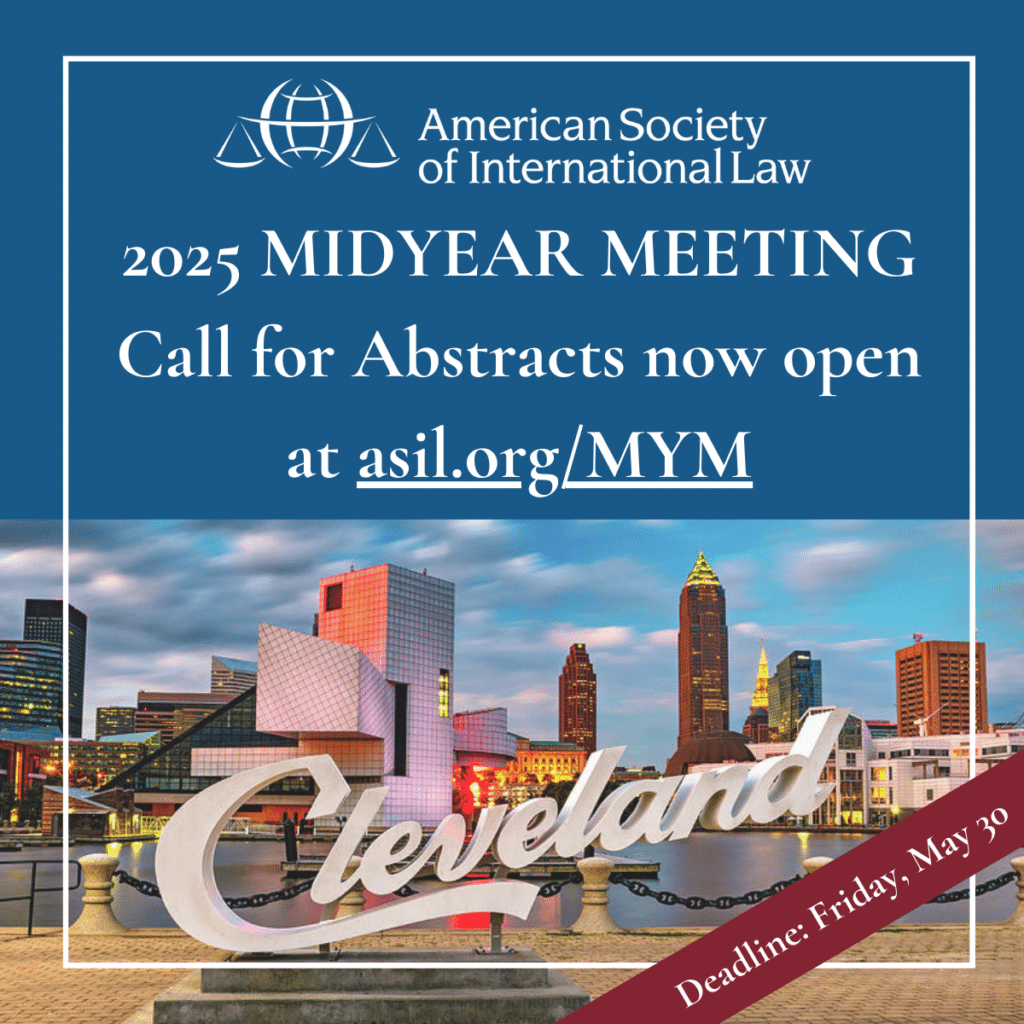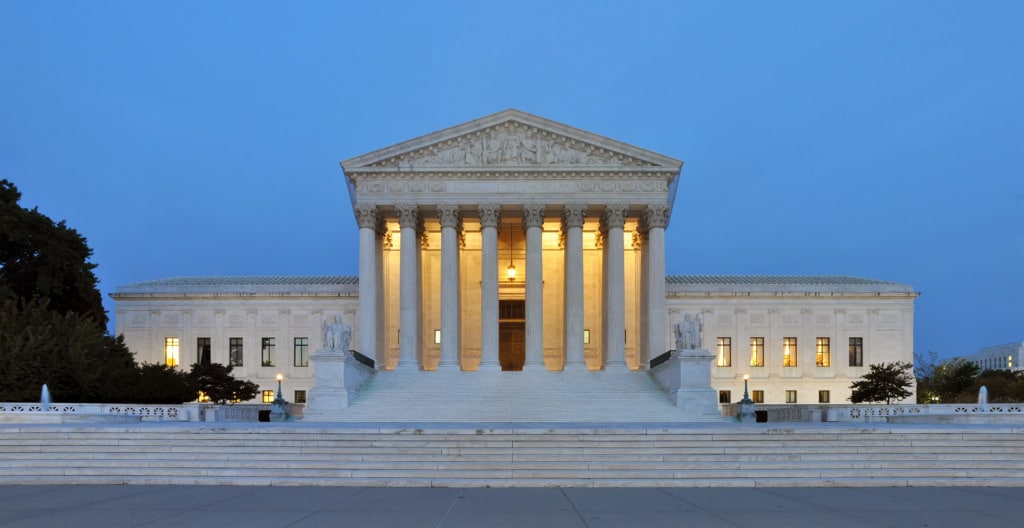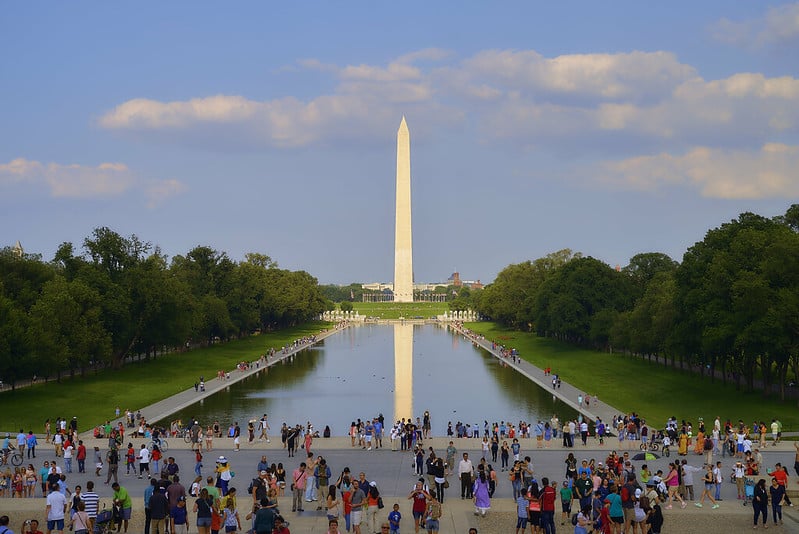Second Circuit Finds Provision of New York Convention Self-Executing
The Constitution’s Supremacy Clause states that “all Treaties made, or which shall be made, under the Authority of the United States, shall be the supreme Law of the Land,” but the U.S. Supreme Court has long distinguished between self-executing and non-self-executing treaties. Self-executing treaty provisions are effective as federal law without implementing legislation. Non-self-executing treaty…
Continue ReadingCall for Paper Proposals—ASIL Midyear Meeting
The American Society of International Law is soliciting scholarly paper proposals for the 2025 ASIL Research Forum to be held at ASIL’s Midyear Meeting, September 25-27, at Case Western Reserve University School of Law in Cleveland Ohio. Abstracts can be submitted by clicking here and then clicking on “Call for Paper Proposals.” The deadline is…
Continue ReadingHalkbank Files New Cert Petition
Halkbank, a Turkish state-owned bank accused of violating U.S. sanctions on Iran, filed a petition for certiorari last week seeking a second chance to convince the Supreme Court that it is immune from criminal prosecution in the United States. In its first trip to the Court, back in 2023, Halkbank argued that it was entitled…
Continue ReadingThe Impossibility of Schrödinger Service
In quantum physics, a system can exist in two states at the same time. When the system is observed, it settles into one of those states. The physicist Erwin Schrödinger found this notion somewhat absurd. In a thought experiment, he imagined a cat in a closed box with a flask of poison and a radioactive…
Continue ReadingNinth Circuit Addresses Common Law Immunity from Criminal Prosecution
Two years ago, in Turkiye Halk Bankasi A.S. v. United States (Halkbank) (2023), the U.S. Supreme Court held that the Foreign Sovereign Immunities Act (FSIA) does not apply to criminal proceedings and remanded the defendant’s claim of common law immunity to the Second Circuit. On remand, the Second Circuit deferred to the executive branch’s determination that Halkbank was not…
Continue ReadingWhen Is a Securities Transaction “Domestic” Under Morrison?
In Morrison v. National Australia Bank (2010), the Supreme Court held that § 10(b) of the Securities Exchange Act applies only to “transactions in securities listed on domestic exchanges, and domestic transactions in other securities.” This holding doomed the securities fraud claims in Morrison because the plaintiffs purchased their shares on the Australian Securities Exchange….
Continue ReadingEnforcing Foreign Judgments in Non-Uniform Act States
The recognition and enforcement of foreign judgments in the United States are generally governed by state law. Most states have adopted one of two uniform acts to address this. Twenty-nine states and the District of Columbia have adopted the 2005 Uniform Foreign-Country Money Judgments Recognition Act. Nine additional states still rely on its predecessor, the…
Continue ReadingServing Foreign Defendants’ U.S. Counsel to Avoid the Hague Service Convention
Plaintiffs are sometimes frustrated trying to serve process on foreign defendants through the Hague Service Convention. Sometimes, they ask federal district courts to authorize service by email as an alternative means. The problem with this, as Maggie Gardner and I have explained in detail, is that that the means of service provided in the Convention…
Continue ReadingInternational Law in Domestic Courts Workshop, May 23
As previously announced, the next International Law in Domestic Courts (ILDC) Workshop will be held at the George Washington University Law School on May 23. ILDC is an interest group of the American Society of International Law. Its purpose is to promote dialogue among scholars and lawyers who are interested in issues pertaining to the…
Continue ReadingThe $24 Billion Judgment Against China in Missouri’s COVID Suit
On March 7, 2025, Judge Stephen N. Limbaugh, Jr. (Eastern District of Missouri) entered a default judgment for more than $24 billion against the People’s Republic of China and eight other Chinese defendants for hoarding personal protective equipment (PPE) during the early days of the COVID pandemic in violation of federal and state antitrust laws….
Continue Reading








